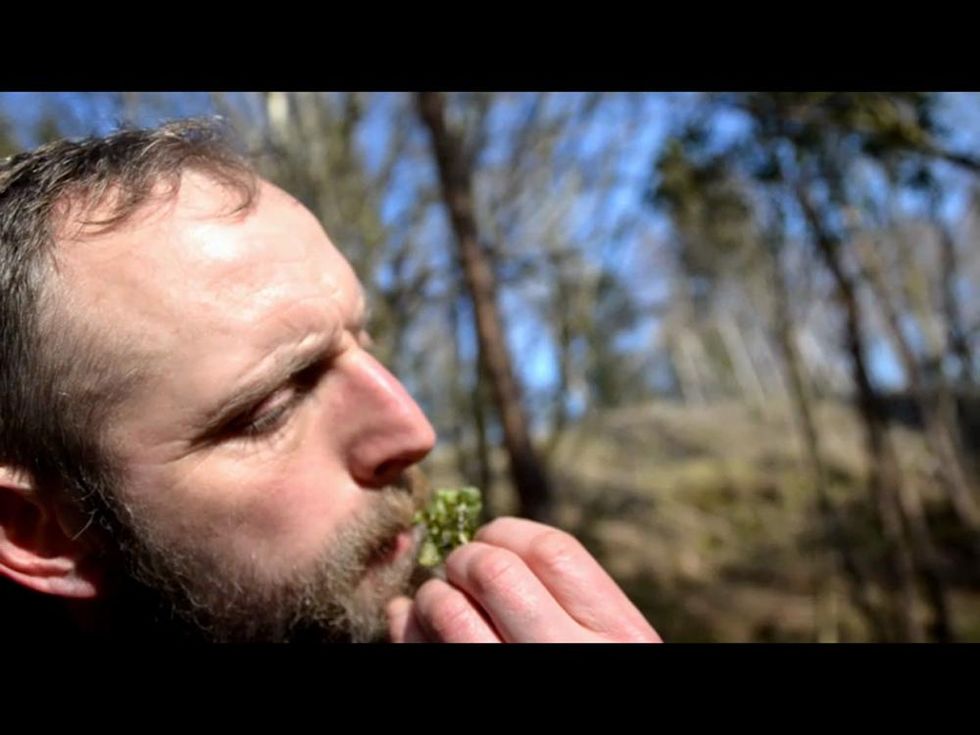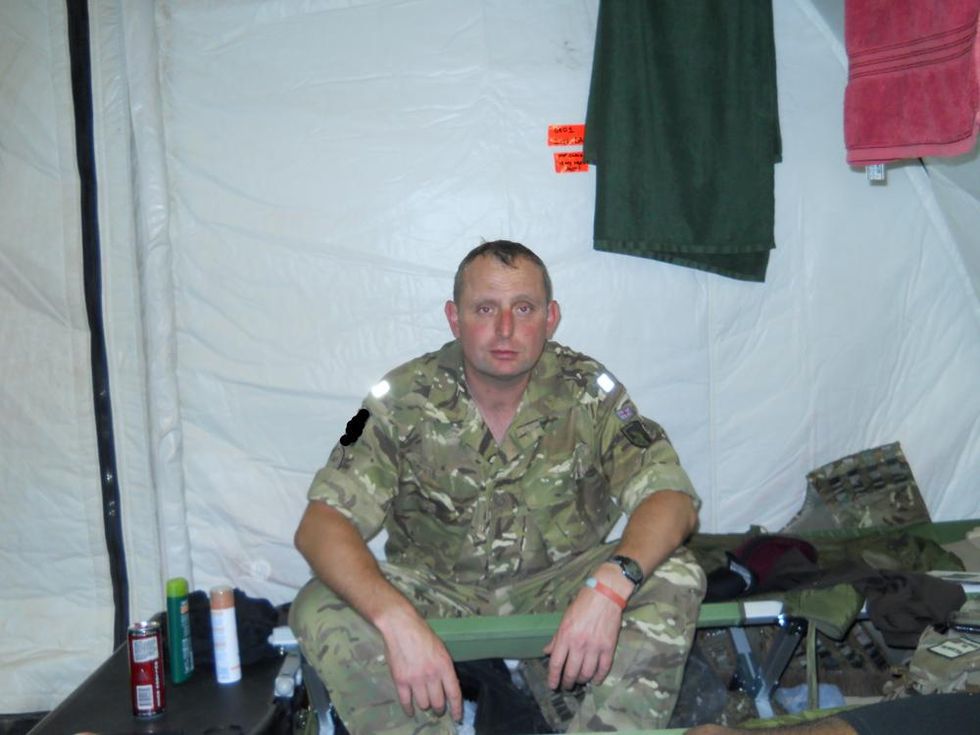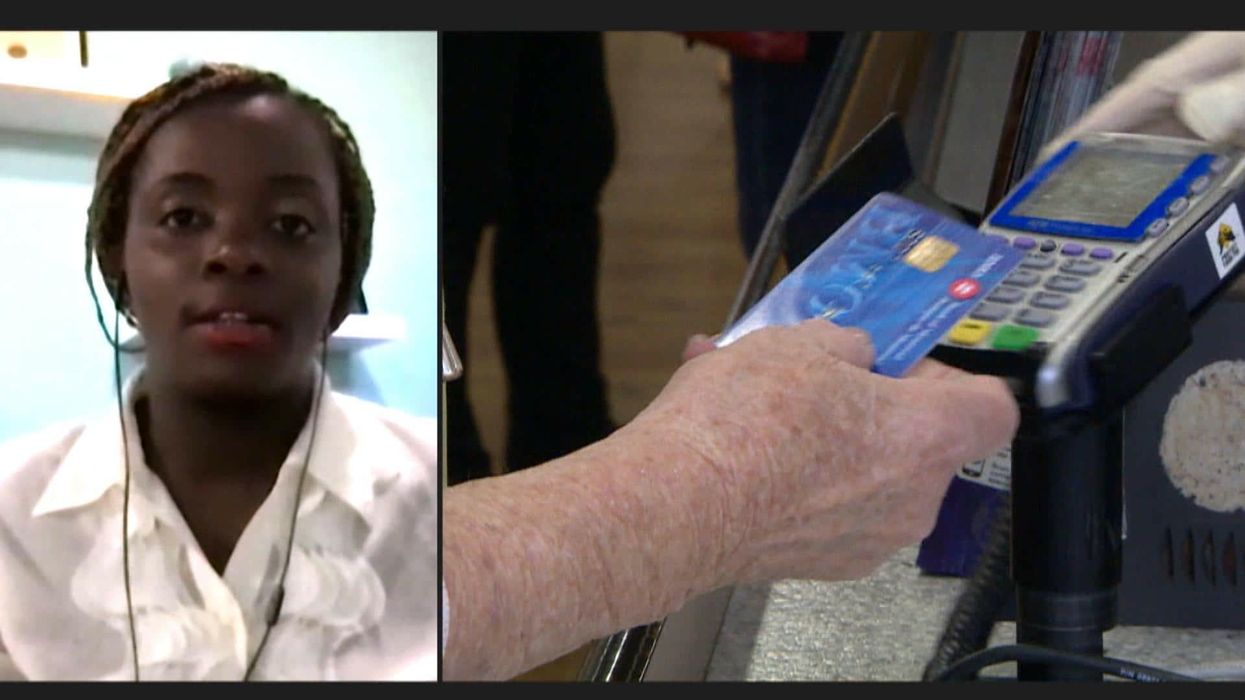A window cleaner who predicted Covid in 2016 and was dubbed “paranoid” for stashing food around Great Britain for two decades in preparation for Doomsday feels vindicated as “apocalyptic” food prices sweep the land.
By March 2020, when the pandemic hit the UK, ever vigilant in case of a catastrophe, Ian Coulthard, 52, had 100 tins of potatoes, 100 tins of carrots, 72 toilet rolls, 40-plus tins of curry and two dozen kilos of rice and pasta stashed around the country.
Insisting he is a “normal man with a mortgage,” the Army and Territorial Army veteran, who served in Afghanistan in 2010 and 2013, is constantly prepared, in case of civil war or a massive terrorist attack, which he has been safeguarding against for 20 years by amassing supplies and honing his survival skills.
Ian, who is single and lives in Gateshead, Tyne and Wear, who spookily predicted back in 2016 that the world could face a major virus, said: “I started learning about survival because I realised that the global economy was going to collapse one day. I figured some kind of pandemic would happen and a socioeconomic collapse.
“Doomsday preppers like me have been called paranoid for saying all of this, but it’s all happening in front of our eyes.
”He added: “I suspected in 2016 that a pandemic was coming and in 2018 I told my neighbours and my family they needed to stock up on food before people started panic buying.
“In 2019, I insisted to my friends, family and neighbours that they stock up on food because I knew things were going to go south.”
Not only did Ian have no need to join panic buyers at the supermarket when Covid-19 hit, but he also had enough supplies to be able to donate some to a vulnerable friend.
He said: “I gave my friend most of my food stock because he had kids and he was struggling. I was rotating my food stashes, so I gave him lots of tins. With what’s coming, food is going to keep getting more expensive.”
Sign up to our new free Indy100 weekly newsletter

Already highly trained in the Army, at the start of the century Ian made sure he knew how to live in the wild and hiked across Britain seeking out perfect hiding spots for his supplies.
He chose five secret locations – in Wales, Cornwall, the Yorkshire Dales, Northumbria and Scotland – where he has stored food and essentials.
He sorted each stash into army ration-inspired packs, including 5,000 calories of food – consisting of sweets, chewing gum, cakes, and dried meals, as well as first-aid supplies – which should last up to three months.
These are hidden two or three feet below the ground and wrapped in plastic so that animals do not find them.
He said: “I had a place down in Wales, a place down in Cornwall, a place in the Yorkshire Dales, in Scotland, where I would go.
“I have been hiking for many years and I love discovering the best places for me to go in case of Doomsday.” He added: “I have planned everything, so I can go in a certain direction to pick up supplies, and there will be a couple of weeks worth of essentials for me.
“One stash is hidden in some rocks and everything is in a place where no one would think to find it. Everything is buried so that animals don’t find it.”
Believing war is part of human nature, Ian has spent years planning for “bugging out” – to retreat during a military action – as he believes it will one day be necessary.
While he stockpiles long-lasting canned food, he has also been growing potatoes in buckets and goes hunting. He said: “Throughout the centuries, in every generation, we tend to have wars. It’s just human nature.
“Vegetables like carrots, peas, potatoes, sweetcorn all last a very long time so they are great foods to buy in tins.” He added: “And even when I grow my own food, I’m always experimenting, to learn how to live in the wild with nothing.
“I started growing potatoes in buckets just to see if it worked – and incredibly it does.” More comfortable in the outdoors, along with his dog Pepper, a nine-year-old collie, Ian spends most of the year camping out and living according to “bushcraft” – the use and practice of skills in order to survive and thrive in a natural environment.
He has learned how to purify water, make a fire and how to forage on his own and says he improves his survival skills every day. He said: “Bushcraft is essentially using what is in our natural world and putting it to good use.
“But prepping is about preparing for a situation that may or may not happen.” He added: “The thing about survival is you need to know how to use anything to survive, while you get back to a safe environment.
“I have, sometimes unwittingly, been prepping my entire life.” During his travels around the country, in order to navigate dense woodland, Ian has become a superb map reader and uses his knowledge of plants and nature, as well as following the stars, to survive outside.
He said: “I have become a very competent map reader and I’m great at navigating using the stars and by using nature. I have always felt comfortable outdoors. My ex-girlfriend used to say that I could sleep on a fence post or on a washing line. I just get used to sleeping anywhere.”
Describing people who think prepping is unnecessary as “zombies,” Ian feels his skills and stockpiling will mean he can sit out civil war, while other people are panicking and fighting to survive. He said: “People who don’t think prepping is necessary, we call them zombies. When it all goes down, they will be the ones panicking and attacking people to survive. They’re going to be ravenous.”
He continued: “Things are going to get worse, and there will be far less supply of everything. People will learn how expensive life is going to get. There’s a lot of unrest and there could be a civil war.”
Despite a lifetime of preparing for Doomsday, Ian feels he cannot guarantee he would survive it, but thinks he has a “fighting chance” As part of his long list of contingency plans, he bought a 17-foot sailboat, so he can flee to Norway as well as two Land Rover cars and a couple of canoes. He said: “It’s arrogant to say you will definitely survive Doomsday unless you have a bunker, but what I have been learning gives me a better chance of doing so.”

Ian grew up near the woodlands in the North East and learned from a young age how to forage. He said: “When I was younger, a long time before it was known as prepping, I was really keen on hunting and being outdoors. I always knew that you could make yourself tea, you could eat dandelions and I have always been interested in nature.”
He continued: “I grew up with an allotment, so growing fruit and vegetables is second nature to me. My dad was a keen gardener. He grew tomatoes, potatoes, cauliflower and broccoli.” But Ian’s turning point as a survivalist came in his twenties, when he first learned how to make fire by friction.
He said: “I have always been keen on survival. In my late 20s, I learned how to make fire from friction and it was a eureka moment. I wanted to learn which woods were better for fire by friction, and learning outdoor survival was my passion.”
Now he is urging young people to learn essential skills such as archery, butchery and how to make fire from friction, and permaculture, so they, too, have a chance of surviving in a post-apocalyptic world. He said: “The world is incredibly unstable and even children should be learning about how to prepare food in the wild. Even things like archery and butchery are essential.”
But, despite a life spent outdoors preparing for the worst, Ian insists he is just a “normal man” who leads a normal life, as he goes to work each morning, drinks his tea and pays a mortgage on his house. He said: “I don’t worry about the world ending every day, but prepping might save my life one day.
“I feel like a normal person with a normal life, I go to work and have my tea just like everyone else. I have a house, I pay my mortgage. I still live a normal life. I just love going hiking and being in the outdoors. When I’m not working, I’ll be improving my survival skills and going out as much as I can.”
Ian runs the Preppers UK Facebook page and the Hikers Haul of Survival YouTube account where he offers advice on bugging out.
PA reporting by Joe Pagnelli.
Have your say in our news democracy. Click the upvote icon at the top of the page to help raise this article through the indy100 rankings.














